Board Meetings v. Membership Meetings
In the context of condominium governance, the basic difference between a board meeting and a membership meeting is self-evident. A membership meeting obviously allows involvement of all condominium unit owners, while a board meeting contemplates participation of only the elected representatives of the condominium association. However, newly formed condominium boards are often uncertain as to which meeting should be called in certain circumstances, or are unfamiliar with the legal requirements for conducting a proper meeting.
The Illinois condominium statute, and the bylaws of each condominium, should indicate when a membership meeting is required. For instance, a membership meeting is mandatory when adopting the annual budget, enacting rules of the association, amending the declaration or bylaws, and of course, conducting board elections. These association matters are of significant interest to all unit owners. Therefore, in order to promote a strong turnout, the Illinois statute requires adequate notice of the scheduling of a membership meeting. Specifically, the law requires "written notice of no less than 10 and no more than 30 days notice of the time, place and purpose of such meeting." Although the goal is to promote participation and input from the owners, one must remember that condominium associations are not a true democracy. As such, while the owners can attend and participate, in many instances, owners are not permitted to ultimately vote on the matter at hand.
In contrast, meetings of the board are an opportunity for the board to manage the day-to-day administration of the condominium association. Although unit owners never have a right to participate or vote at board meetings, the condominium statute states that all board meetings must be "open" to the owners. As such, the unit owners are again entitled to notice. However the length of the advance notice is much more relaxed, as the board is merely required to provide at least 48 hours notice of the time and location of the board meeting. Specifically, the condominium statute requires that notice must be "mailed or delivered" at least 48 hours prior, thereto, ". . . and copies of the notice of meetings . . . shall be posted in the entranceways, elevators, or other conspicuous places in the condominium at least 48 hours prior to the meeting."
There are certain exceptions to the open meetings requirement. Specifically, the condominium statute permits a "closed door" board meeting under six circumstances; 1) discussion by the board of "pending" or "imminent" litigation in which the association is a party, 2) to consider information regarding employment or dismissal of an employee, independent contractor, agent, or other provider of goods and services, 3) to interview a potential employee, independent contractor, agent, or other provider of goods and services, 4) to discuss violations of rules and regulations of the association, 5) to discuss a unit owner's unpaid share of common expenses, and 6) to consult with the association's legal counsel. Previously, such discussions were required to be conducted during a private “executive session” of a properly noticed board meeting. Boards may still discuss these topics as a part of the regularly scheduled meetings; however, effective January 1, 2017, the board may discuss these topics amongst themselves without any notice to the unit owners. This amendment is in direct response to the 2014 controversial Illinois Appellate Court decision Palm v. 2800 Lake Shore Drive Condominium Association, 2014 IL App (1st) 111290. However, consistent with Palm, the condominium statute still requires that any final decisions made by the board must be voted on at an open meeting. This concept of requiring the board to memorialize actions at the open meeting is known as "ratification." Please see our firm article Conducting Board Business After the Palm Decision and Illinois Legislature Amends Condominium Act in Response to Harsh Holding of Palm for a more detailed discussion of this case.
Any unit owner may record, via audio or video, the proceedings at meetings, though the board "may prescribe reasonable rules and regulations" with respect to the recording. Clearly an owner does not typically video record a board meeting for family entertainment purposes. Rather the owner has for whatever reason become disgruntled. One approach to prevent the alienation of unit owners is to provide for an "owner's forum" during the meeting. This forum gives the owners an opportunity to comment or ask questions of the board either at the beginning or end of the meeting. Even though the owners have no right to vote on board matters, the owner's forum provides the owners with a sense of participation in the direction and affairs of the association.


